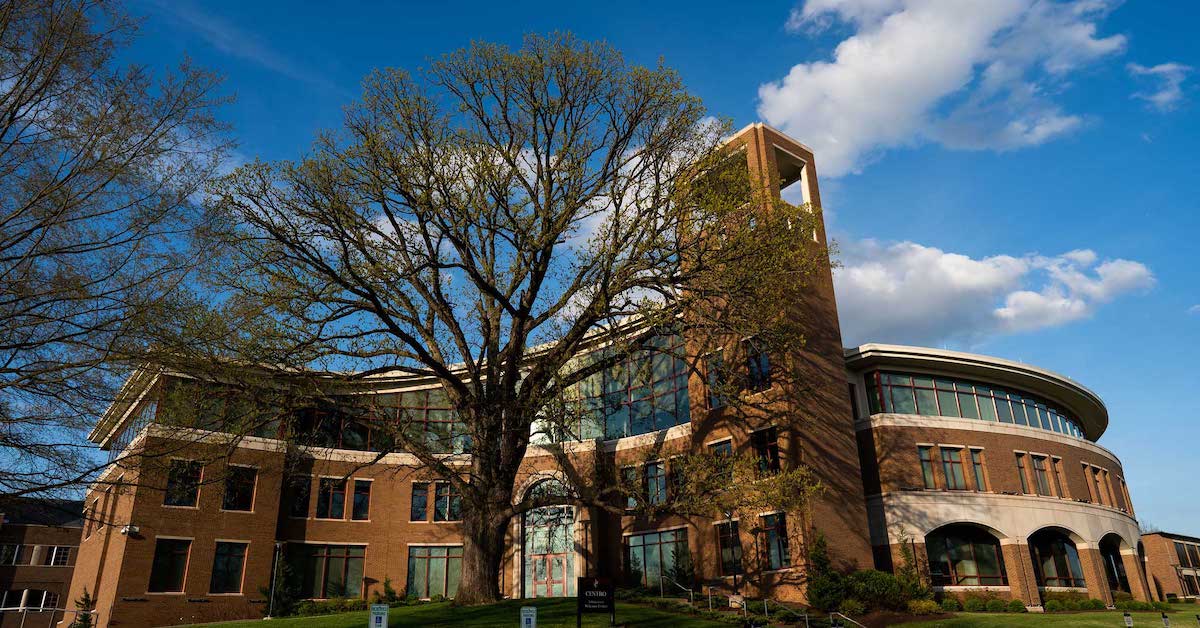
Bellarmine University has established a steering committee to make recommendations for safely reopening campus late this summer and fall.
The steering committee – comprising faculty, staff and students – plans to deliver the recommendations to Dr. Susan M. Donovan, Bellarmine’s president, by June 15.
Members are weighing a complex matrix of scenarios that range from hosting only virtual classes to in-person campus life that integrates procedures for minimizing exposure to the COVID-19 virus. The committee strongly prefers the latter option if the state of the pandemic allows it.
“We are really taking a 360-degree view, evaluating what it will take to reopen our campus as safely as possible,” said Dr. Nancy York, dean of the Lansing School of Nursing and Clinical Sciences, who co-chairs the steering committee with Dr. Sean Ryan, senior vice president. “Right now, our goal is to make campus life as normal as possible. We’re also trying to create a safe environment in which to learn, teach, live and work.”
York said the steering committee is meeting weekly, with numerous subcommittees meeting more often, evaluating every aspect of campus life in conjunction with government protocols, such as Kentucky’s Healthy at Work Initiatives and the Centers for Disease Control and Prevention’s recently released Consideration for Institutes of Higher Learning.
The committee is also taking advice from the American College Health Association, looking closely at what other universities are doing and speaking frequently with peer institutions within the commonwealth.
“As the pandemic peaks and wanes, regulations change,” York said. “We are keeping abreast of those changes, so we can pivot quickly if we need to.”
Olivia Atkinson, a junior political science and history double major, is serving on the steering committee as a student representative in the Student Government Association.
She said witnessing how exhaustive and all-encompassing the deliberations have been has made her feel comfortable with what the future holds in the fall, whether it’s online, in person or a hybrid of both.
“Everyone is doing a great job,” Atkinson said. “No matter what happens, the decisions that they make will be backed by research and made with the best intentions for everyone in the Bellarmine community.”
She said that she and her student peers on the committee have advised that the student body would strongly prefer to be back on campus, even if precautions alter the traditional campus experience.
“We really love being at Bellarmine and we want to be back there on campus, if possible, and we’re willing to make adjustments in terms of physical distancing in order to go back,” she said.
York said that message has been received loud and clear.
“We know they like living and learning together,” she said. “We’re certainly keeping that as a goal, but we’re also developing contingency plans in case that’s not possible.”
Dr. Helen-Grace Ryan, vice president for Student Affairs, said students must understand that if in-person campus life is permissible, it will be different.
The committee is looking at changes such as creating more to-go dining options, mask protocols and campus visitation policies and keeping students in classrooms, common spaces and resident halls socially distant.
“For example, at orientation, we’re not going to have 600 students piled in a giant room doing ice-breakers,” she said. “That’s part of the Bellarmine tradition, but we’re not going to have anything like that this year.”
To make up for the loss of opportunities to meet in person, the university is creating more ways for students to connect with each other, advisors and faculty online starting this summer.
Upper-class students involved with orientation are meeting with first-year students in Google Hangout sessions in June and July. Academic advisors are hosting one-on-one sessions with students online. The Office Identity and Inclusion is working on a plan of outreach for first-year students. Faculty and staff are planning to call each student in the coming weeks to check in and see how they are.
“We’re working hard on ways to continue that Bellarmine hospitality throughout the summer,” Ryan said.
York said the committee is carefully considering how “the Bellarmine difference” can be maintained when classes resume in the fall, even as social distancing is required.
The university’s smaller class sizes and faculty-to-student ratios help, she said. Bellarmine doesn’t have large lecture hall classes that can be difficult to scale into a different format, and it isn’t difficult for students to make personal connections, as it might be at larger universities.
“It is fair to say, the college experience may look different than it has previously, but I’m not sure it won’t look better, because we are certainly being creative on how we deliver content and how we’re having students meet with one another to experience their courses,” she said.
For example, the Lansing School is re-evaluating content and how it’s taught, with special emphasis on multidisciplinary collaboration, which more accurately simulates work in the real world.
“We’re looking at how we bring respiratory therapy and medical laboratory science and nursing and radiation therapy together into a single simulation experience, where all in the health profession are involved,” York said. “This has kind of pushed us into things we were already thinking about. Now is the time to really get this done. We know it’s important. It might be online, but there’s no reason we can’t pull all our departments together to have this new learning opportunity.”
Ryan said that as carefully as the university is planning to keep students safe as they return to campus, students must do their part as well, by frequently hand-washing, wearing masks in public and avoiding crowds.
“Anyone who knows Bellarmine knows they are in good hands,” she said. “But there’s a balance. Everyone has personal responsibility. If students leave campus and go hang out, go to parties or bars, we can’t protect them. We are truly in this together.”